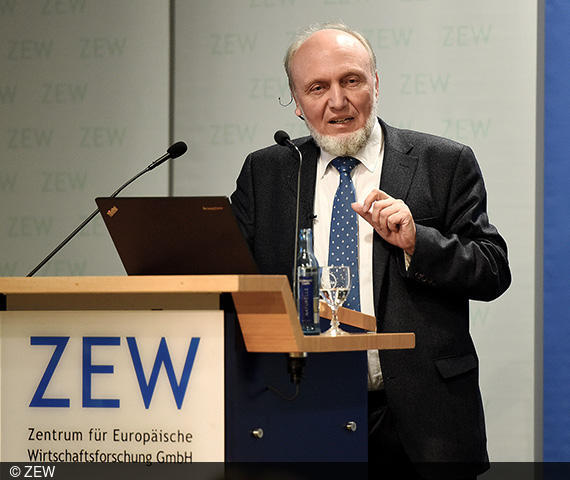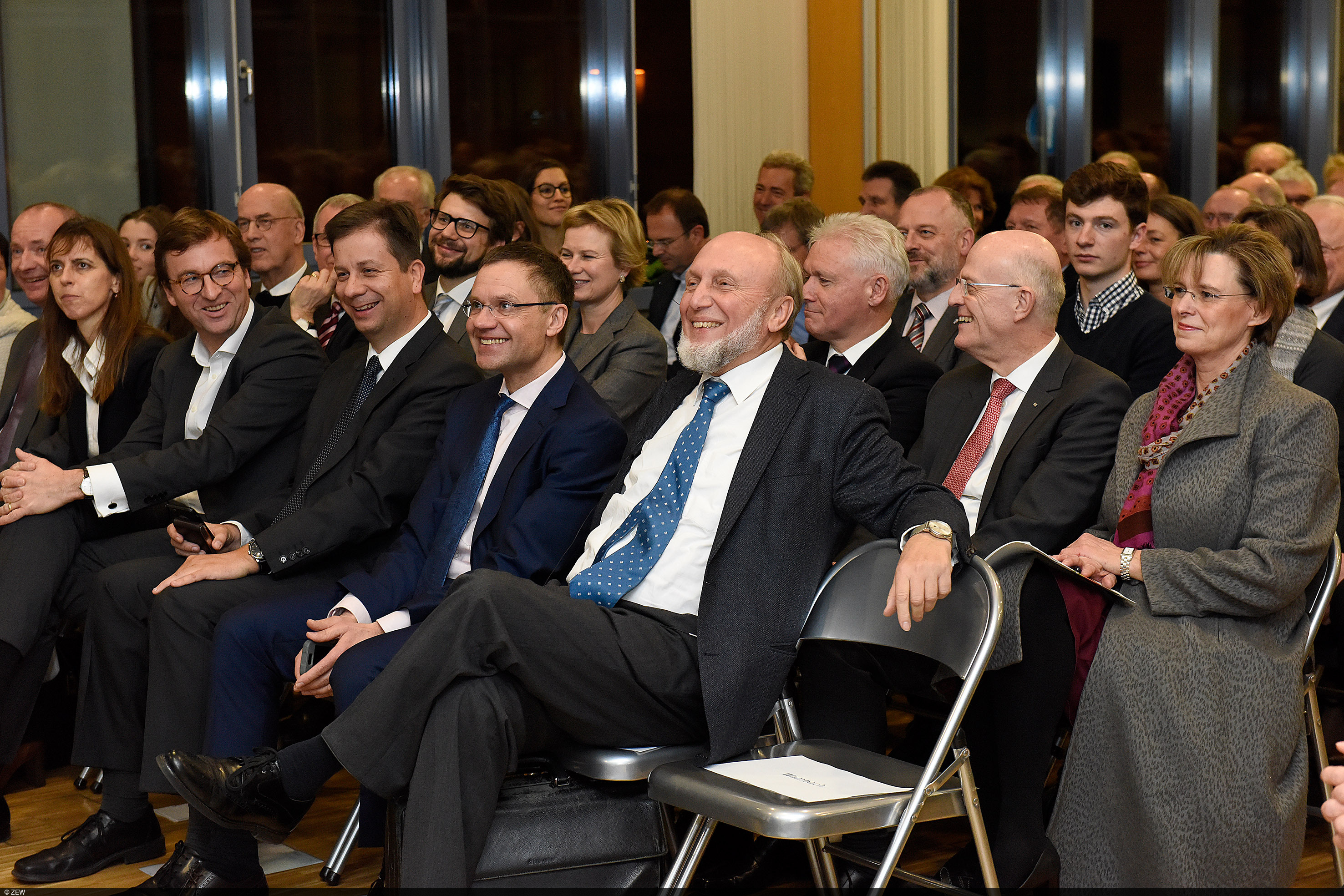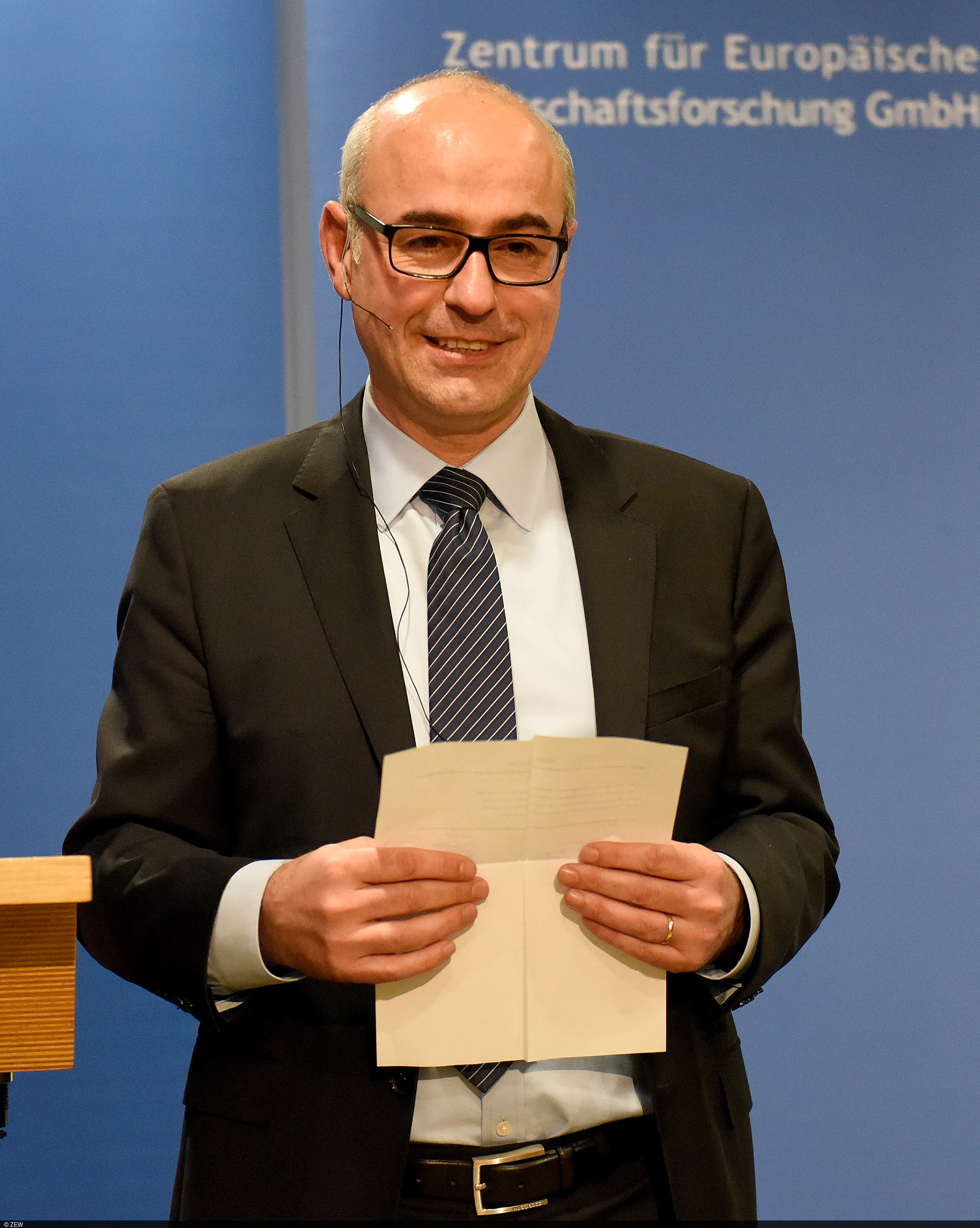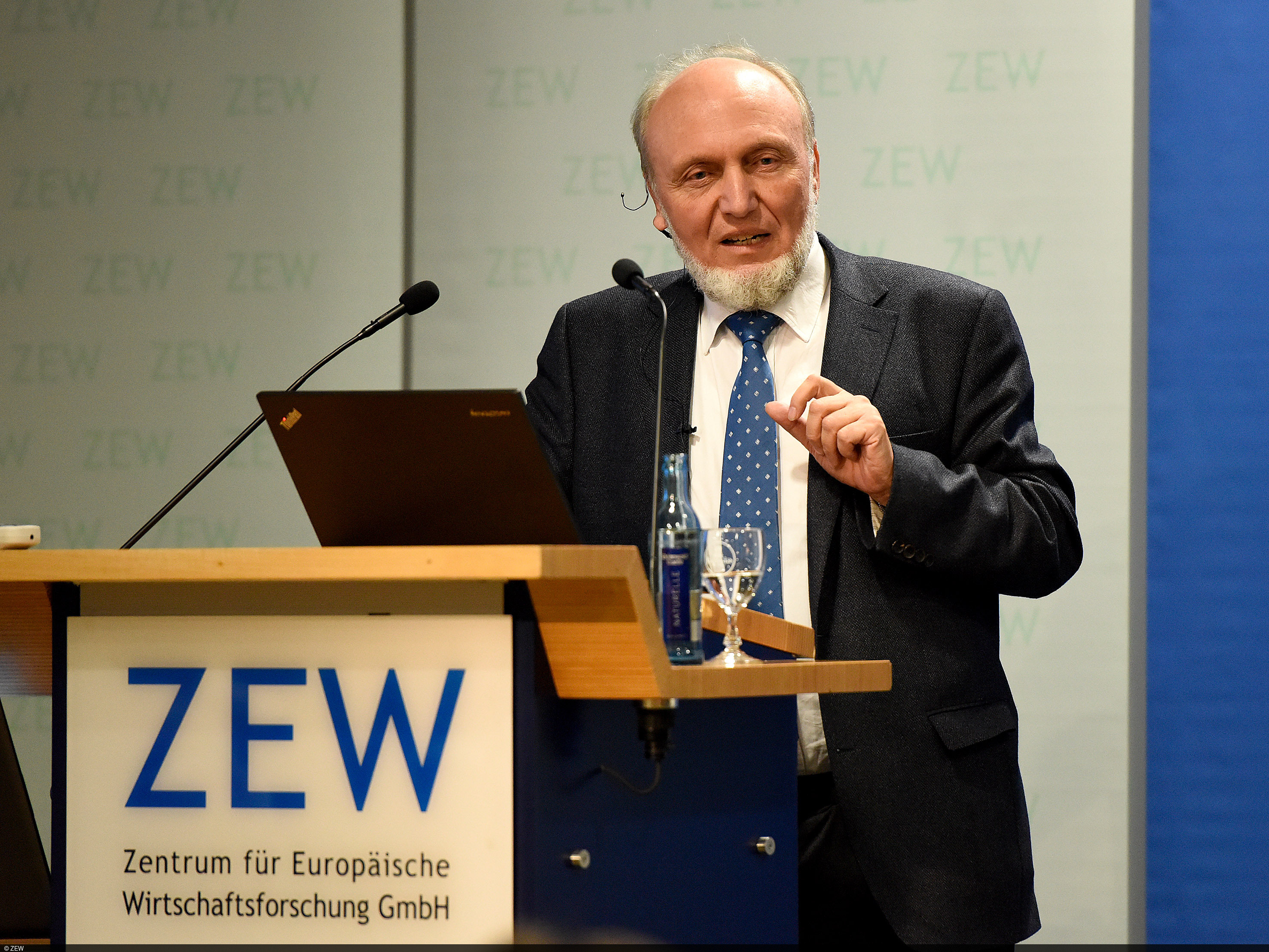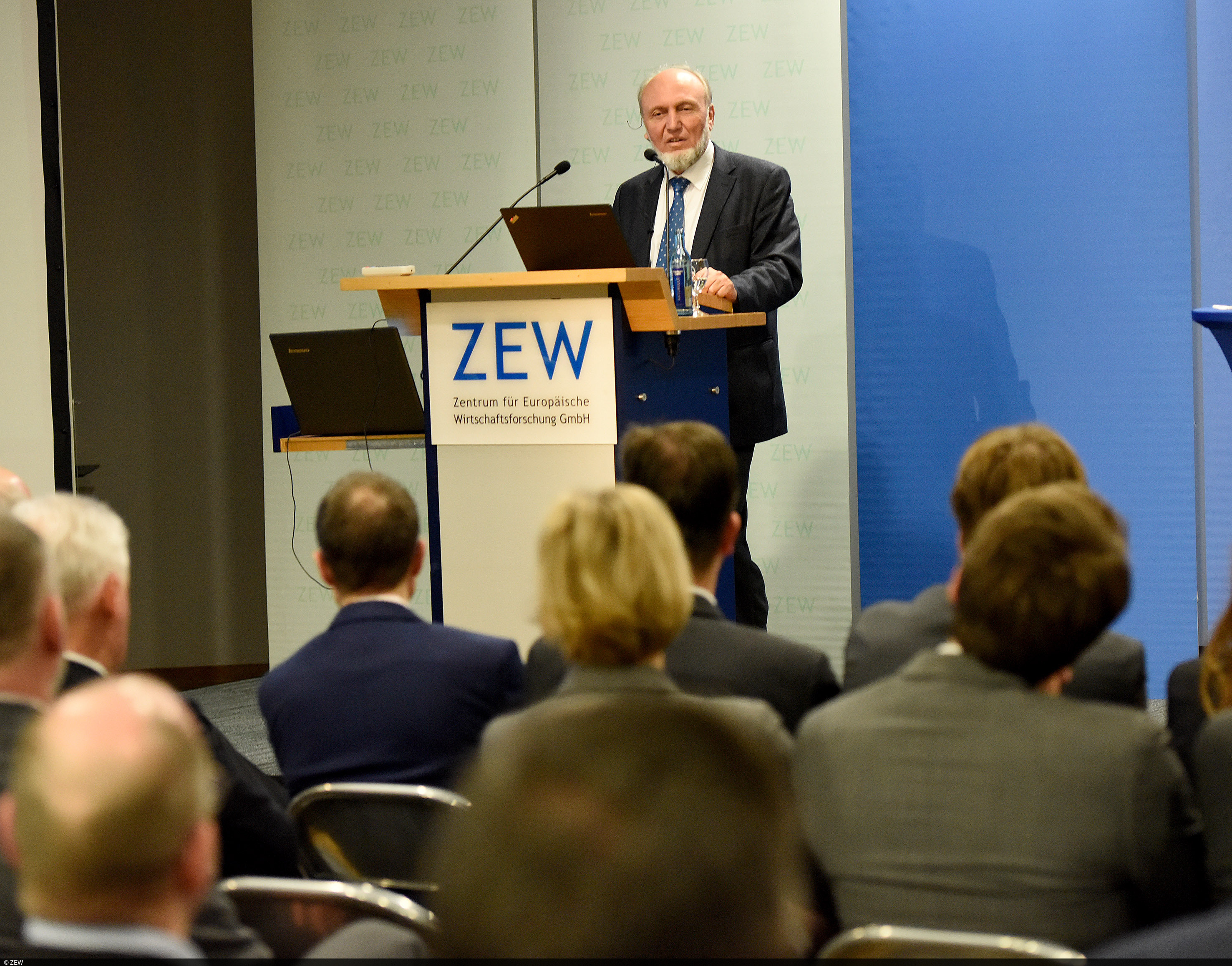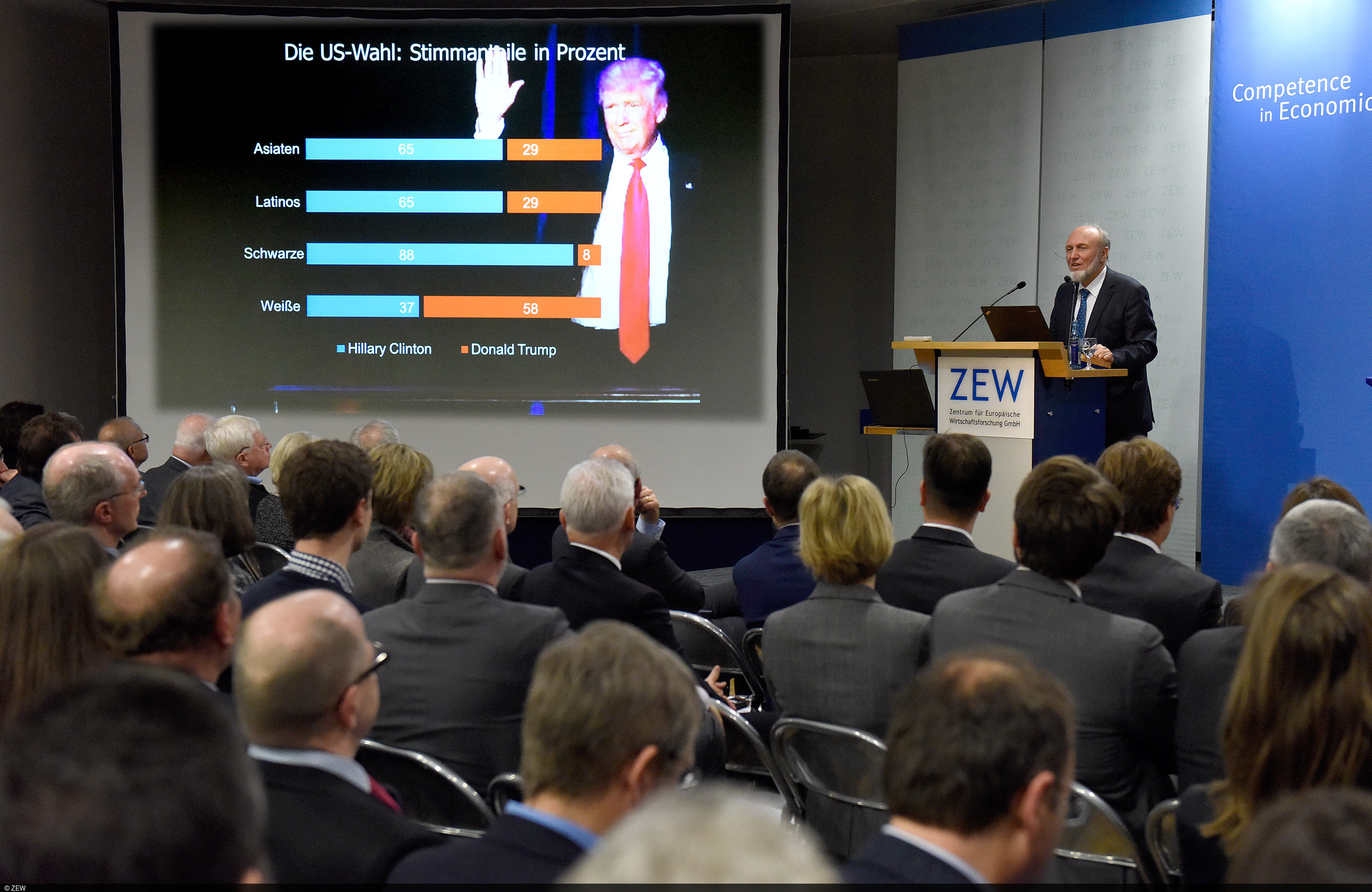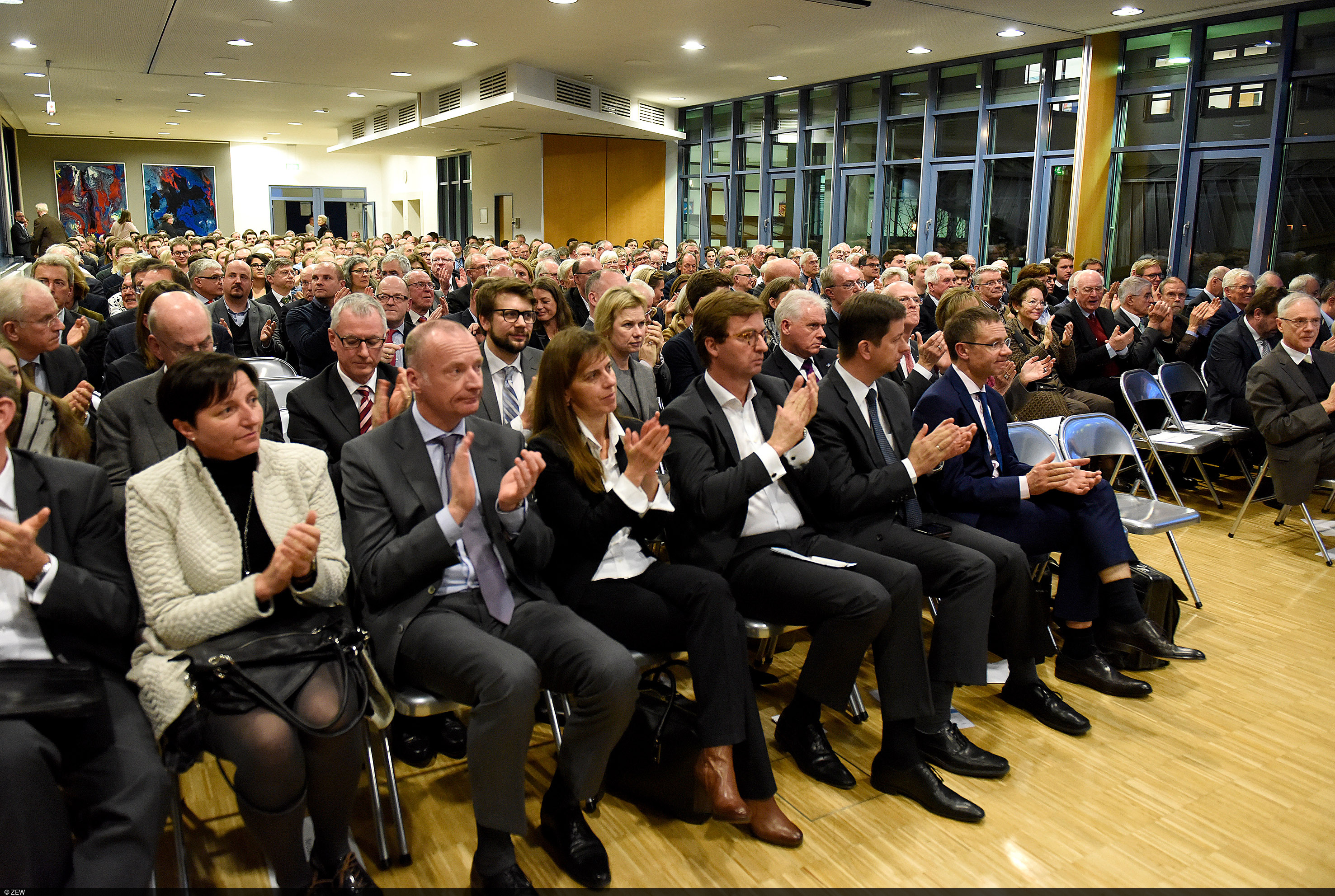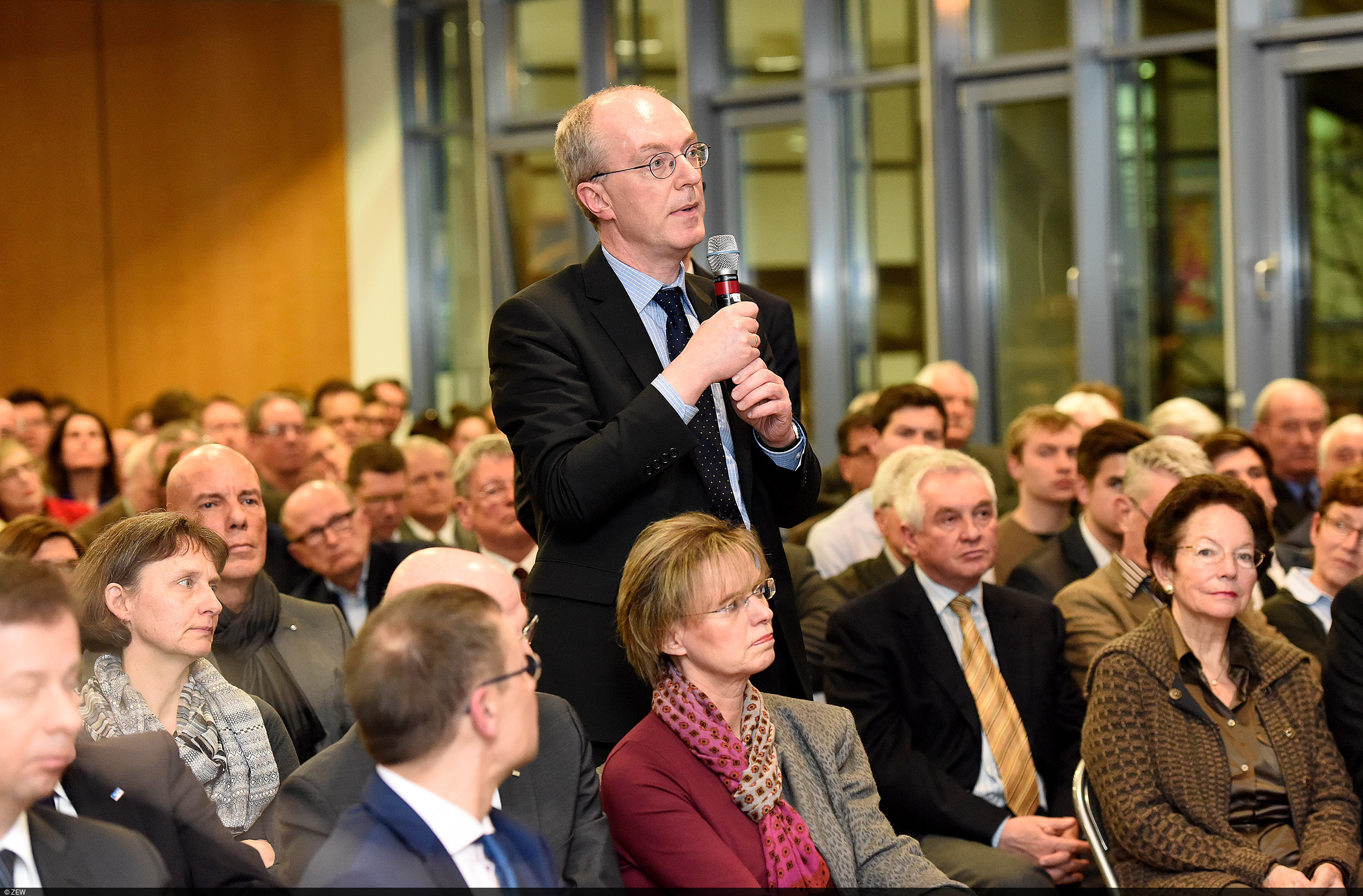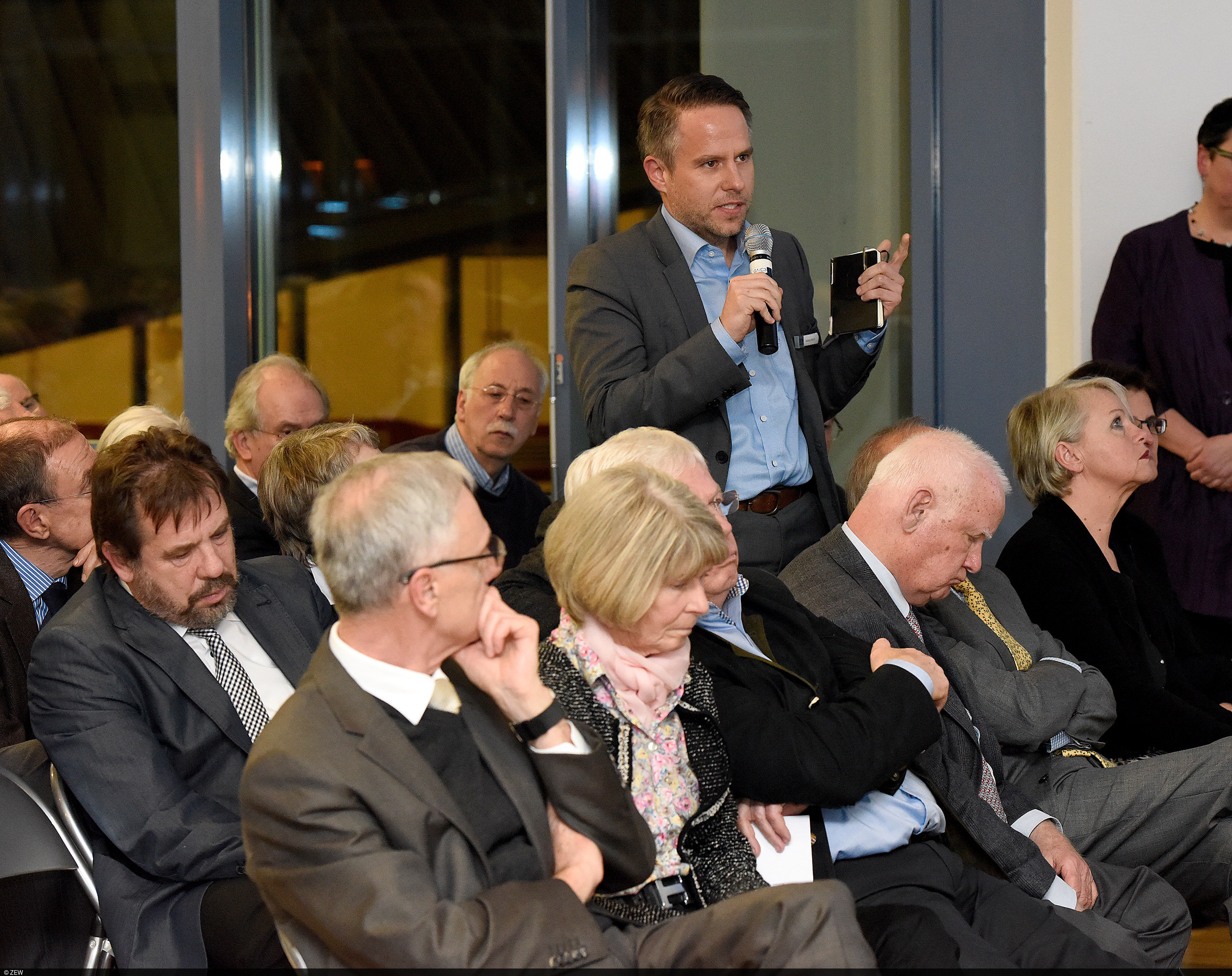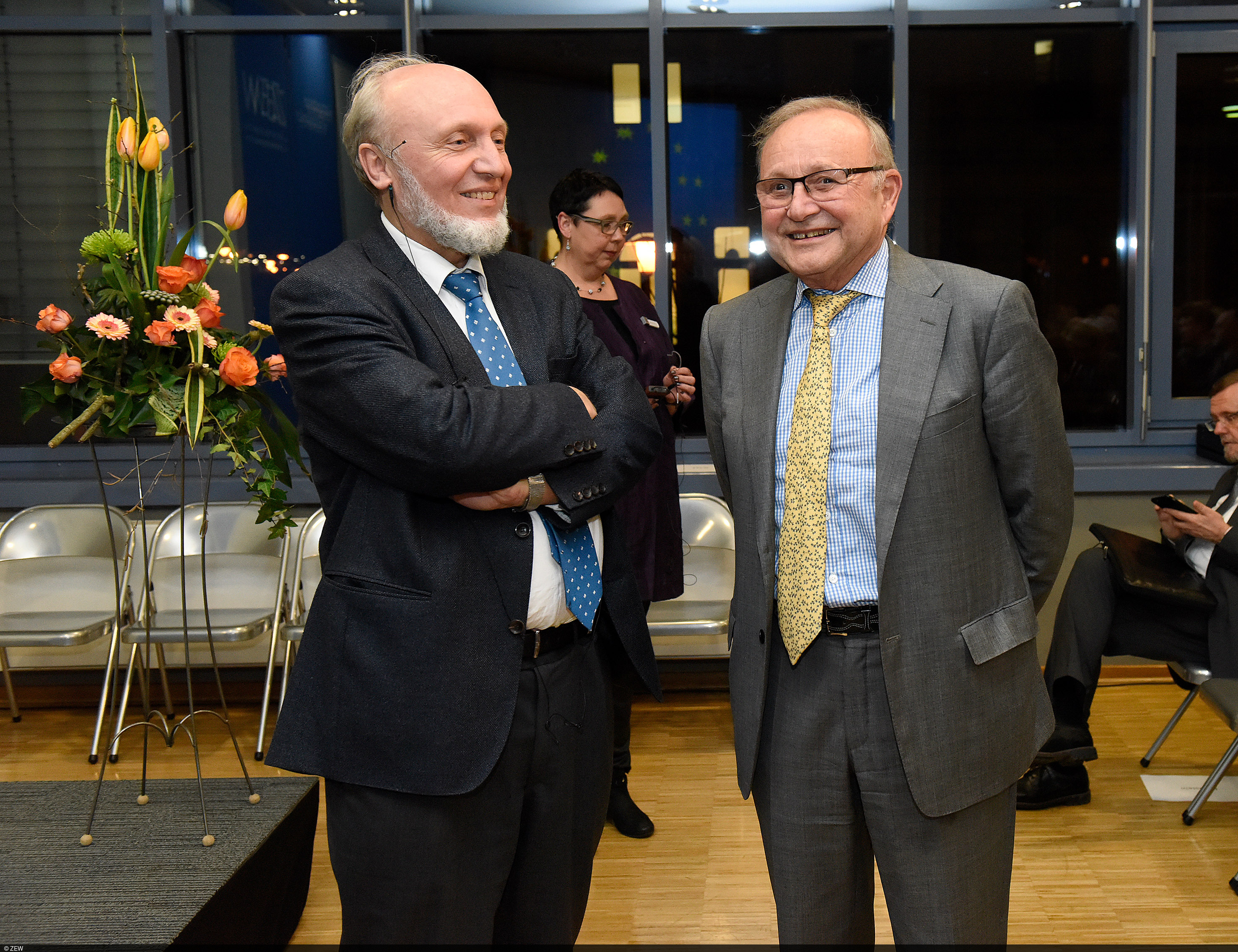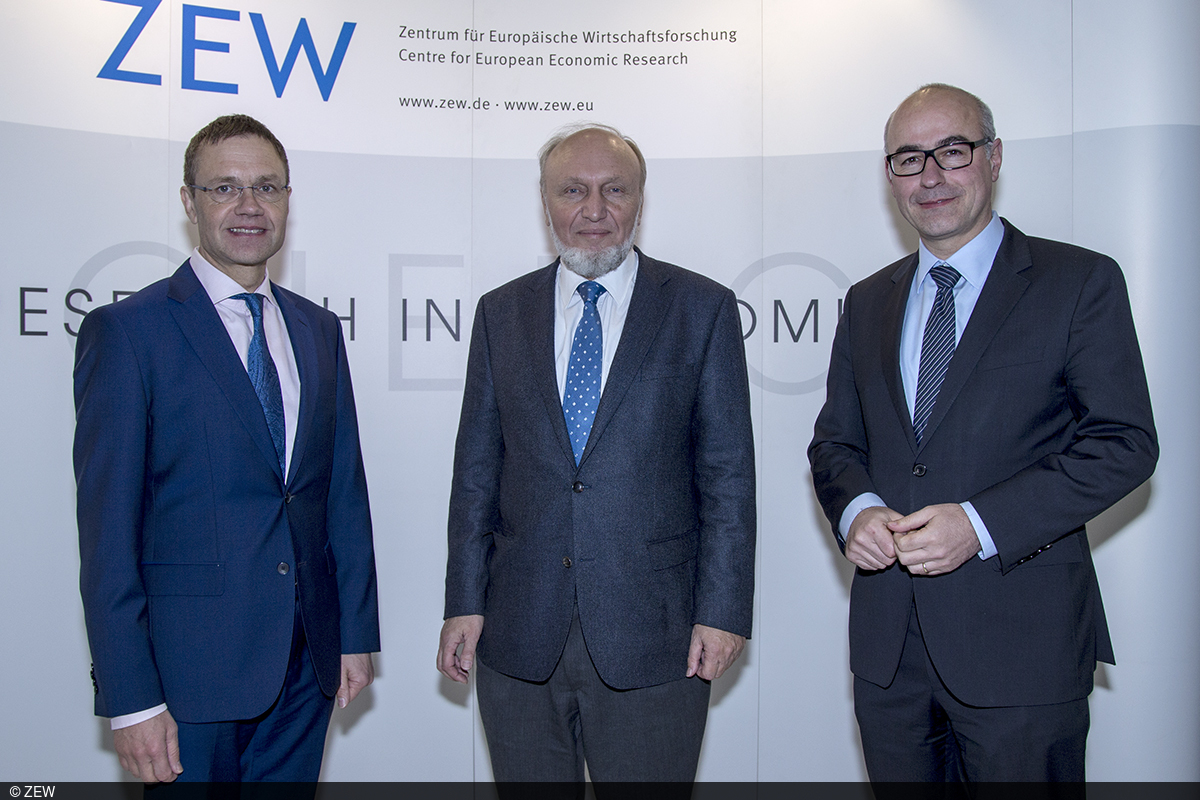First-Hand Information on Economic Policy – "The New Europe Must Succeed"
Public EventsBrexit, Trump, refugees and the eurozone crisis – in light of these serious problems facing Europe, what does the future hold for the European Union? On 1 February 2017, Professor Hans-Werner Sinn, former President of the ifo-Institute and one of Germany's most outspoken economists, laid out his 15 Point Programme for the Re-establishment of Europe Post-Brexit and highlighted which reforms Germany and the EU urgently needed to implement. Around 350 guests and leading figures from the worlds of politics, science and economics gathered at the Centre for European Economic Research (ZEW) in Mannheim and listened intently to Sinn's presentation, which was part of the lecture series First-Hand Information on Economic Policy.
"The 21st and 23rd June 2016 were game-changing in terms of their impact on the future of both Europe and Germany. We have to respond now," said Sinn at the start of the lecture. According to Sinn, Brexit will have devastating consequences for the EU: "The UK leaving the EU will have the same economic impact as the twenty smallest Member States leaving." Brexit will also cause those EU nations in favour of free trade to lose their blocking minority of 35 per cent in the EU Council of Ministers. This minority will shrink to 26 per cent and upset the current balance of power in Europe. "For this reason alone, Germany must push for renegotiations of EU treaties," claimed Sinn. At the same time, the United States' unpredictable economic policy line under the Trump administration poses a threat to export-oriented Germany through drastic restrictions on free trade. "Our government needs to understand the significance of the US as our most important export market as well as that of Great Britain as the third most important," said Sinn. This means that how Germany and the EU behave towards the UK in the future will be of particular importance. "Germany, at the very least out of self-protection, must offer Great Britain an attractive position as an associate member of the EU."
The ECB in a state of exception
Another key focus of Sinn's lecture was the eurozone crisis. "We are growing with negative interest rates and an undervalued euro. This is not real growth, but rather artificial growth generated across domestic markets and financed through government debt," raged the economist. Real growth can only occur through international industry competition. Sinn claimed that the reason for these problems was the neoclassical crisis of real exchange rates. "If we want to save the eurozone, Germany has to become more expensive," concluded Sinn. According to the economist, the European Central Bank (ECB) is currently in a state of exception: "At the moment, there is no limit on how many government bonds the ECB can buy off the countries in crisis. This buying of government bonds must be stopped." This free credit default insurance resulting from ECB President Mario Draghi's "whatever it takes" attitude involves great risks for taxpayers, who would be made liable for any credit defaults.
On a related note, Sinn denounced the ECB's quantitative easing programme: "Quantitative easing makes it easier for states to fall into debt through printing more money." 2.3 trillions euro's worth of securities are expected to be sold this way by the end of 2017 – a bottomless pit in Sinn's view. "The German Bundesbank has to credit the lion's share of quantitative easing because the liquid funds are accumulated in Germany," explained the economist. Ultimately, this would make Germany liable to blackmail and the country would find itself forced into consenting to a European fiscal union.
"Europe needs a change in course"
"We cannot build a collective Europe on this basis," said Sinn. He made the case for abandoning de facto joint debt liability so that Europe can regain some much needed stability. "We need a change in course. The path we are currently on can only lead to more conflict in Europe." For this reason, Sinn's programme calls for a "breathing currency union". "Temporarily abandoning the euro would have a positive effect on the financially stricken Member States' ability to compete." On top of this, Sinn also called for bankruptcy proceedings against states with an automatic lifetime extension in liquidity bottlenecks.
He ended by declaring himself in favour of distinguishing between the country of origin principle in the case of inherited entitlements and the host country principle in the case of earned entitlements. "Up until this point, we've been trapped between three irreconcilable aims: free movement within the EU, creating an effective welfare state and social inclusion. "It just can't work," Sinn added. Further points in Sinn's programme included allowing asylum applications sent from outside the EU to be received and processed as well as the stabilisation of states bordering the EU to the south and the east. The last point on Sinn's programme was a potential consolidation of all the European armies, including the Eastern European armed forces. "We have to return to the basic principles of the EU and strive for a security partnership that will prevent armed conflict," Sinn concluded.
